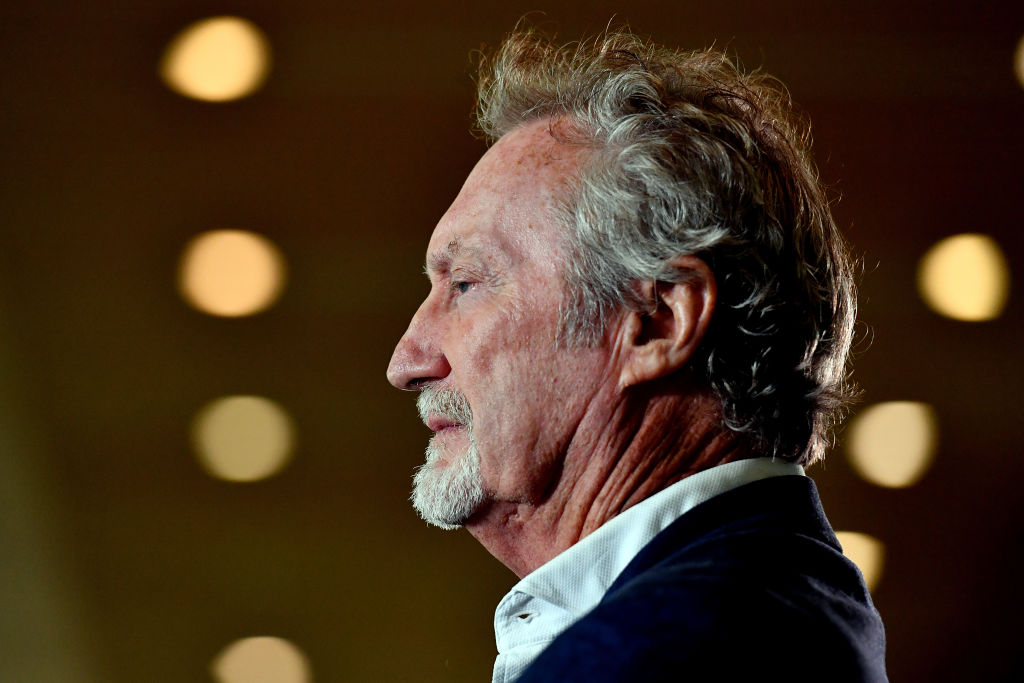The speaker at the National Press Club today was a man raised in the western suburbs of Sydney by his mother in a housing commission house – sounds like the Prime Minister, but it was actually Aussie film icon, Bryan Brown.
He was in Canberra to tell the press why the Australian film and television industry needs to keep telling Australian stories.
Up on the hill, at Parliament House, the Federal Government is preparing to introduce legislation to regulate streaming services to support Australian content.
Bryan says support for Australia’s screen sector is vital to ensure our national story is heard. The absence of Australian stories in 1972 was the reason why he left Australia to work in England.
“Because all I saw on Australian stages were Australian actors doing English and American plays in English and American accents,” Bryan says. “It seemed pretty silly doing that in Australia, so I went to England to do it first-hand.”
Ironically, Bryan admits he was an actuary before he became an actor. Since his career change, he hasn’t looked back – hurling bottles with Tom Cruise, sharing a bath with Sigourney Weaver, meeting President Bush, and singing with Paul McCartney.
But he wasn’t in Canberra to name-drop; Bryan says the reason why he got a personal tour of the White House in the ‘80s was because of the success of Australian TV series, A Town Like Alice.
“It made them hungry for knowledge about Australia,” Bryan says. “That is why we must remain vigilant, committed, disciplined and persistent. If our ability to present ourselves on film is taken away, we’ll become unsure of ourselves, in awe of others, and less as a people. A thriving film and television industry presents who we are to the world.”
When Bryan returned from England to work in Australia in 1974, he saw a change in Australian theatre, television and film.
“We were telling our stories, telling them with our voice and our sensibility,” Bryan says.
“We were sharing the Australian experience, its place, its people, its struggle, its history, its strength and its weaknesses. Where did this creativity come from? It was there in its people, wasn’t it? All that was needed was a visionary government to recognise it and support it. That’s what John Gorton’s government did. The film floodgates opened and it has continued.”
Bryan asks the question: Why do our kids say butt now and not bum, and wear baseball caps backwards?
“The answer is obvious. Television and film – its power is so great.”
So as politicians discuss the regulation of streaming services, Bryan points out that Australian audiences hand over a few billion dollars each year to streaming companies.
“We need some of that revenue put back into Australian stories,” he says.
“Canada and France have legislated that revenue taken from their countries must go into local production. In France, that’s over 25 per cent.
“ A 20 per cent reinvestment obligation, complemented by strong and sound [intellectual property] arrangements, would help secure the future of our industry and keep it viable.
“Streaming companies will fight hard to not legislate but we must fight just as hard because this is for our culture. And what a story our story is.”



